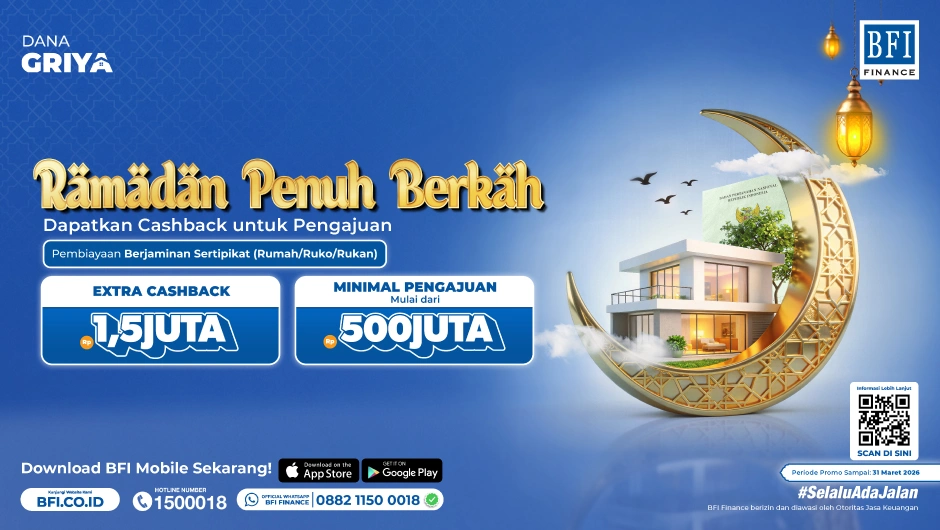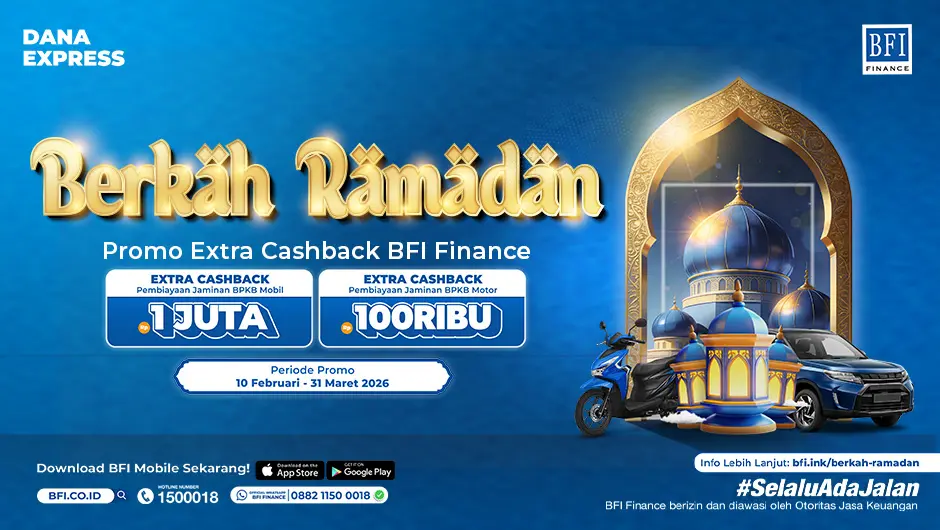Tenor is one of the important instruments when we apply for a loan or investment. If it is related to loans, the tenor is used to determine the capacity of the prospective debtor in how long it will take to pay the installments. The type and length of the tenor are highly dependent on the type of financing or credit. On this occasion, the BFI Finance team discussed in detail what tenors are and their types and tips for choosing the right tenor. Check out the following review.
What are Tenors?
Tenor is the period of credit or installments given to the debtor and must be paid to the lending company. The determination of the length of the tenor depends on the ability of the debtor to pay the installments and on the agreement between the creditor and the debtor. The tenor is one of the determining factors for the interest rate given by the lender to the debtor.
In general, tenors are divided into loan tenors and deposit tenors. Here is the full explanation.
a. Loan Tenor
When talking about the tenor in the loan, the tenor is the period given by the creditor to the debtor in paying installments. Generally, the longer the tenor, the higher the interest rate offered. On the other hand, shorter tenors will offer lower interest rates. Usually, loan interest rates offered by Financial Institutions such as Banks and Financing Companies range from 1% to 3% per month, if using a fixed interest rate.
An example of the calculation is if you apply for a loan with a BPKB Motor guarantee of Rp. 10,000,000 with a tenor of 6 months and an interest rate of 1% per month, then the number of installments per month that must be paid are:
| 1st Installment | 2nd Installment | 3rd Installment | 4th Installment | 5th Installment | 6th Installment | |
| Loan Principal | Rp 1.766.000 | Rp 1.766.000 | Rp 1.766.000 | Rp 1.766.000 | Rp 1.766.000 | Rp 1.766.000 |
| Loan Interest | Rp 100.000 |
That is, the number of installments per month that you pay is the result of the total principal debt of IDR 10,000,000 for 6 months plus 1% interest per month. Financial institutions do not always offer fixed interest rates, but also apply to floating interest rates. The type of interest rate depends on your type of credit or financing.
b. Deposit Tenor
In the context of deposits, the tenor is the period of time used in deposit investments which are usually offered by the Bank starting from one month, three months, six months, and twelve months. The interest rates offered by these deposits are also higher than ordinary savings accounts. Thus, this financial product has many enthusiasts and is suitable for debtors who have a low-risk profile. The longer the tenor of the deposit also increases the interest rate given. A certain amount of money in deposits cannot be withdrawn within a certain period or tenor. If forced to use deposit money before the end of the tenor, a fine will be imposed, the amount of which depends on each bank.
The following is an example of the application of interest rates on deposit tenors:
| Tenor Lenght | Interest Rate per Year |
| 1 Bulan | 4,8% |
| 3 Bulan | 6,00% |
| 6 Bulan | 6,30% |
| 12 Bulan | 6,60% |
Tenor Type
1. By Type of Credit or Financing
a. Home Ownership Loans (KPR)
KPR is a type of credit that is specifically for debtors who want to own a house on credit. Through a mortgage, you can own house assets quickly, but you still have to pay installments every month. With these advantages, the total cost of a mortgage is greater if you decide to build a house from scratch or buy it for cash.
If you decide to use a mortgage, there is a choice of tenor which can usually be applied from 5 to 25 years. Each Bank has regulations that affect the length of tenor given to debtors. Of course, the longer the tenor, the smaller the total monthly installments that must be paid. However, the interest rate offered is usually higher than the short tenor.
Mortgages usually offer two types of interest rates, namely fixed interest rates and floating interest rates. The two types of interest rates also have different tenors. There are several banks that apply fixed interest rates in the initial tenor as in the first 3 years. Furthermore, the Bank will set a floating interest rate that follows the movement of market interest rates for the 4th year until the installments are paid off.
b. Unsecured Loans (KTA)
KTA is a loan that is in great demand by several groups because of the ease of applying for it. This convenience is usually offered through a fast and unsecured approval process. However, the interest rate offered by this KTA is usually higher than that of a KPR. Generally, KTA also offers a shorter tenor when compared to KPR, which can range from 1 to 5 years.
c. Guaranteed Credit
This type of credit requires prospective debtors to pledge their assets which can usually be in the form of vehicle BPKB guarantees and house certificates. Collateralized loans offer tenors that vary from 3 to 5 years or even more.
2. By Time
Types of tenors are also distinguished according to the length of time, namely:
a. Long Tenor
Long tenors are tenors with installment terms of 3 to 30 years. Long tenors are generally applied to loans and financing that have large principal debts, the nominal value of which can reach billions of rupiah. Examples of the application of a long tenor can be used in mortgages, buying motor vehicles on credit, as well as financing with car asset guarantees and house certificates like financing at BFI Finance.
b. Short Tenor
In contrast, a short tenor is an installment period that can be applied from one month to three years. Generally, short tenors are used for types of credit and financing that have a principal debt that is not too large. For example, financing with a motorcycle BPKB guarantee, electronic credit, or online loans.
Factors that Determine the Length of Tenor
Before the creditor decides on the right loan tenor to be given to the debtor, there are four factors that influence in determining the length of the tenor, namely:
a. Amount of Loans
The amount of the loan or credit that you apply for is a factor that creditors will use as a recommendation for the right tenor. If you apply for credit or a loan with a principal amount that is not too large, it is likely that the lender will advise you to use a short tenor. Conversely, if you apply for credit or a loan with a large principal debt, the lender will recommend using a long tenor.
b. Age of the Borrower
The age of the borrower is the next determining factor in the selection of the tenor. In this case, the creditor will assess the productive age-related to the ability to pay installments per month. The younger the age of the borrower, the longer the productive age of the borrower which determines the longer the tenor. On the other hand, if the age of the borrower is old, it is considered that his productive age is decreasing and will affect his ability to pay installments, so it is possible to get a shorter tenor.
c. Income per Month
The amount of income per month is also a determining factor in choosing a tenor. The creditor will assess the ability of the prospective debtor from the amount of income he receives per month. The income can be in the form of fixed income that the prospective debtor receives per month or income from the business he runs.
d. Other Assets
Other assets owned by prospective debtors such as houses and vehicles, along with regular monthly expenses are also factors that determine the length of the tenor.
Tips for Applying for a Loan with the Right Tenor
- Choose a Financial Institution that has a good track record. Prioritize those that have been registered and supervised by the Financial Services Authority (OJK).
- Choose the Financial Institution that offers the lowest interest rates. You can do research first regarding the advantages and disadvantages offered by financing and credit products. However, don't be fooled by low-interest rates. You must remain vigilant against all forms of illegal online or conventional loans.
- Adjust to the needs of the loan. As mentioned above, the longer the tenor, the higher the interest rate. However, with a long tenor, the number of monthly installments will be smaller. On the other hand, if you don't want to get a high-interest rate, you can choose a short tenor because the interest rate offered is lower than the long tenor.
- Adjust to the borrower's financial capacity. You must be able to have careful financial planning, so you can determine the tenor that matches your financial capabilities. Make sure your monthly expenses don't exceed 30% of your monthly income. In this case, it will also affect the creditor's assessment of your Debt Service Ratio (DSR).
So, that's an understanding of what a tenor is and its types and tips for choosing one. Tenors are instruments in loans and investments that are inevitable. After reading this article, I hope that you will not be mistaken in determining the length of the tenor for the loan. BFI Finance, one of the oldest financing companies in Indonesia, also provides financing products with various tenors. If you need a loan for business capital, education costs, home renovation costs, and other financial needs, just trust BFI Finance. With the guarantee of BPKB Cars, Motorcycles, and House Certificates, you have the opportunity to get loans with various ceilings and tenors. You can choose a short or long tenor according to your ability. So, let's submit your financing through BFI Finance.
Click to apply for a Car BPKB Guarantee Loan
Click to apply for a BPKB Motor Guarantee Loan
Click to apply for a Home Certificate Guarantee Loan
BFI Finance, the Solution for All Your Financial Needs.
![Tenor is: Definitions, Types, Factors, and Tips [Complete]](https://digital-bucket-v3.prod.bfi.co.id/assets/Blog/Blog%20New/Tenor%20adalah/Tenor%20adalah.jpg)






